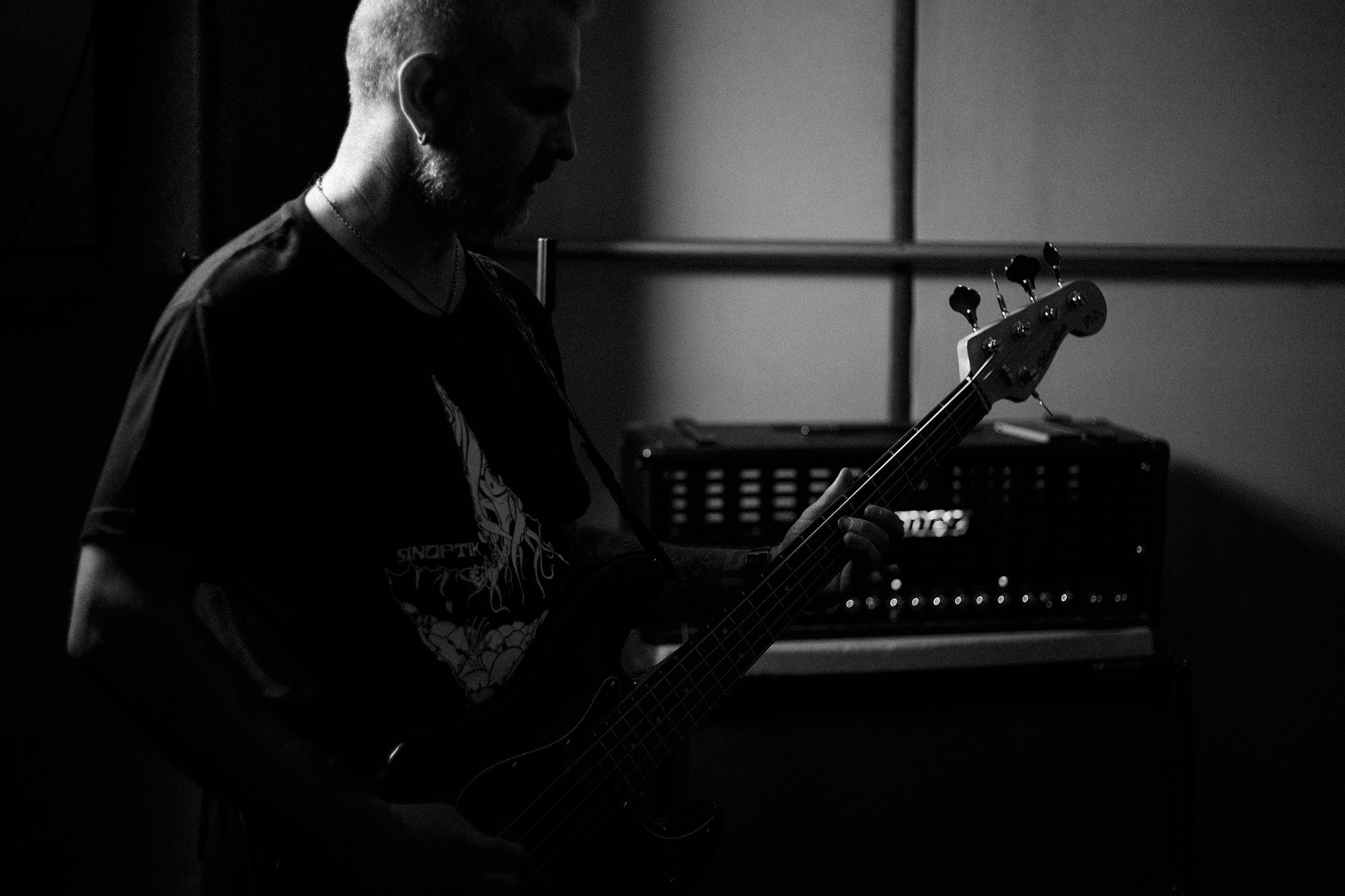

Rock
Why Is Rock Music Evil
Modified: January 22, 2024
Discover the controversial truth about rock music and its alleged connection to evil. Uncover the dark secrets and explore the impact of rock on society.
(Many of the links in this article redirect to a specific reviewed product. Your purchase of these products through affiliate links helps to generate commission for AudioLover.com, at no extra cost. Learn more)
Table of Contents
Introduction
Rock music has long been a controversial and influential genre in the music industry. From its inception in the 1950s to its evolution into various subgenres today, rock music has captured the hearts and minds of millions of fans worldwide. However, it has also faced its fair share of criticisms and controversies. Some argue that rock music promotes rebellious and immoral behavior, while others see it as a form of artistic expression and freedom.
In this article, we will explore the various perspectives surrounding the question of whether rock music is evil. We will delve into its history, examine its influence on youth, scrutinize questionable symbolism and lyrics, discuss its alleged connections to occult practices and Satanism, explore religious perspectives on rock music, analyze its effects on mental and emotional health, and engage in the debate on censorship and regulation. By delving into these topics, we hope to provide a comprehensive view of the controversial nature of rock music and the discussions surrounding its impact on society.
History of Rock Music
Rock music traces its roots back to the 1950s when pioneers like Elvis Presley, Chuck Berry, and Little Richard created a new sound that combined elements of rhythm and blues, country, and gospel. This groundbreaking fusion of musical genres captured the attention of young audiences and laid the foundation for what would become rock and roll.
In the 1960s, British bands like The Beatles and The Rolling Stones catapulted rock music into the mainstream, ushering in the era of the British Invasion. Their infectious melodies, energetic performances, and rebellious attitudes resonated with a generation of teenagers seeking an alternative to the traditional norms of society.
The 1970s saw the emergence of various subgenres of rock music, including psychedelic rock, progressive rock, and hard rock. Bands like Pink Floyd, Led Zeppelin, and Black Sabbath pushed the boundaries of musical experimentation and lyrical themes, exploring topics such as the human condition, politics, and spirituality.
The 1980s brought a surge of commercial success for rock music with the rise of glam metal bands like Bon Jovi and Def Leppard. This era also witnessed the emergence of alternative rock bands such as R.E.M. and The Cure, who offered a more introspective and emotionally charged sound.
In the 1990s, the grunge movement took center stage with bands like Nirvana, Pearl Jam, and Soundgarden, who embraced a raw and unpolished sound that resonated with disillusioned youth. This decade also saw the rise of pop-rock bands like Oasis and Blur, showcasing a more melodic and accessible side of the genre.
Today, rock music continues to evolve and diversify, with subgenres like indie rock, garage rock, and post-rock gaining prominence. Iconic bands like Foo Fighters, Green Day, and Arctic Monkeys carry the torch for rock music in the 21st century, appealing to both old and new generations of fans.
Throughout its history, rock music has not only served as entertainment but also as a powerful vehicle for self-expression and social commentary. It has allowed artists to challenge societal norms, provoke thought, and ignite change. However, it has also been subject to criticism and controversy, raising questions about its impact on society and its alleged connection to evil influences.
Criticisms of Rock Music
From its early days, rock music has faced a barrage of criticism from various quarters. One of the main criticisms leveled against it is that it promotes rebellious and immoral behavior among its listeners, particularly the youth. Many argue that the loud and aggressive nature of rock music fosters a culture of defiance, drug use, and even violence. Songs with explicit lyrics and provocative themes have raised concerns among parents, religious groups, and conservative individuals who believe that such content negatively influences impressionable minds.
Another criticism centers around the influence of rock music on gender roles and sexual behavior. Some argue that rock music perpetuates sexism and objectification of women through its lyrics and imagery. The portrayal of women as sexual objects in music videos and the glorification of promiscuity has drawn fire from feminist groups and advocates for gender equality.
Rock music has also been criticized for its supposed glorification of substance abuse. Critics point to lyrics that seemingly romanticize drug use and excess, arguing that such messages can encourage impressionable individuals to experiment with dangerous substances.
Critics of rock music often claim that it is responsible for the erosion of traditional values and societal norms. They argue that the rebellious and countercultural ethos of rock music challenges established social and moral frameworks, leading to a breakdown of societal cohesion and stability.
Furthermore, some critics claim that rock music lacks musical complexity and relies too heavily on volume and distortion. They argue that this preference for loudness and distortion diminishes the artistic value of the music and reduces it to mere noise.
It is important to note, however, that these criticisms are not universally agreed upon. Supporters of rock music argue that it is a powerful form of artistic expression that reflects the social, political, and cultural climate of the times. They maintain that the rebellious and provocative nature of rock is what makes it so impactful and resonant with audiences. They also contend that rock music has evolved and diversified over the years, encompassing a wide range of styles and themes that defy generalizations and stereotypes.
The criticisms of rock music highlight the ongoing debate surrounding its influence and impact on society. While some see it as a force for positive change and self-expression, others view it as a corrupting influence that should be strictly regulated or even banned. Understanding these criticisms and engaging in constructive dialogue can help shed light on this contentious issue and inform our perspectives on the role of rock music in our world.
Influence on Youth
One of the most significant concerns raised about rock music is its potential influence on impressionable young minds. Critics argue that the rebellious and anti-establishment messages conveyed in rock songs can encourage youth to engage in risky behaviors and adopt questionable attitudes.
One aspect often highlighted is the impact of explicit and controversial lyrics on the perception of appropriate behavior and morality among young listeners. Songs that glorify violence, drug use, and promiscuity can be seen as sending harmful messages to impressionable youth, potentially normalizing and desensitizing them to these behaviors.
Additionally, the charismatic and often rebellious personas of rock artists can have a powerful impact on the youth who idolize them. Young fans may emulate their favorite rock stars’ lifestyle and attitudes, which may include substance abuse, reckless behavior, and disregard for authority. This emulation can have serious consequences on the physical, emotional, and social development of young individuals.
However, it is essential to note that the influence of rock music on youth is not entirely negative. Many argue that rock music provides an outlet for self-expression, offering a cathartic and transformative experience for young listeners. The themes of rebellion and empowerment found in rock music can give young people a sense of identity, fostering creativity and confidence.
Moreover, rock music has often been a catalyst for social change. Throughout history, rock songs have vocalized protests against injustice, inequality, and political unrest. These messages of dissent inspire young individuals to become involved in activism and advocate for positive change in society.
It is crucial to approach the topic of rock music’s influence on youth with nuance and critical thinking. While it is essential to acknowledge and address the potential negative influences, it is equally important to recognize the positive impacts and provide guidance to young listeners. Open communication, parental guidance, and media literacy can play a significant role in helping young individuals navigate the complex messages conveyed in rock music and make informed decisions about their beliefs, behaviors, and values.
Questionable Symbolism and Lyrics
Rock music has often been criticized for its use of questionable symbolism and lyrics. Some argue that certain bands and artists deliberately incorporate occult imagery, satanic symbolism, or explicit and offensive language into their music. These elements, critics claim, contribute to a culture of moral decay and promote negative ideologies.
One of the most common areas of concern is the alleged association between rock music and occult practices or Satanism. Some bands have been accused of using occult symbols and imagery in their album covers, music videos, and stage performances. While many argue that these are merely artistic expressions or attempts to shock and provoke, others view them as promoting sinister ideologies or even direct worship of evil forces.
Additionally, the lyrical content of some rock songs has raised eyebrows and sparked controversy. Lyrics that explicitly depict violence, drug use, sexual exploitation, or nihilistic themes have been the subject of scrutiny and condemnation. Critics argue that these lyrics not only promote immoral behavior but also desensitize listeners to the consequences of such actions, particularly among impressionable youth.
However, it is important to recognize that not all rock music incorporates questionable symbolism or offensive lyrics. The genre encompasses a wide range of styles and themes, and there are countless bands and artists who produce music with positive, thought-provoking, and socially conscious messages. It would be unfair to generalize and lump all rock music into a single category based on the actions or themes of a few controversial artists.
Furthermore, the interpretation of symbolism and lyrics can be subjective. What one person perceives as questionable or offensive, another may view as artistic expression or social commentary. It is crucial to consider the context in which these elements are presented and to engage in critical analysis rather than making sweeping judgments.
Ultimately, the presence of questionable symbolism and lyrics in rock music should not be disregarded or ignored. It is important to acknowledge the concerns raised by critics and engage in open discussions about the potential influence of such elements on listeners. At the same time, it is equally vital to recognize the diversity of rock music and the many artists who use their platform to convey positive and meaningful messages to their audiences.
Connection to Occult and Satanism
One persistent controversy surrounding rock music is its alleged connection to the occult and Satanism. Throughout the history of rock, there have been numerous claims made about bands and artists engaging in occult practices, embracing Satanist ideologies, or promoting rituals and symbols associated with dark forces.
Some argue that these connections are merely sensationalized and blown out of proportion. They maintain that the use of occult themes and symbols in rock music is often a form of artistic expression or a deliberate attempt to shock and provoke. They argue that these elements are used to create a sense of mystery and intrigue rather than promoting genuine beliefs or practices.
However, there have been instances where certain bands and artists have openly embraced and identified with Satanism or occult ideologies. These individuals adopt symbols such as inverted crosses, pentagrams, and sigils associated with occult practices. They draw inspiration from works of literature, such as the writings of Aleister Crowley, and advocate for the pursuit of personal freedom and the rejection of societal norms.
It is crucial to note that the vast majority of rock musicians do not engage in occult practices or promote Satanist ideologies. The actions of a few controversial artists should not be used to tarnish the entire genre. However, the public perception of rock music’s connection to the occult and Satanism persists, perpetuated in part by media sensationalism and moral panics.
Critics argue that the alleged connection to the occult and Satanism in rock music can have a negative influence on impressionable minds. They believe that these themes can lead individuals to dabble in dangerous activities or even embrace harmful beliefs. Consequently, there have been calls for censorship, boycotting, or regulation of rock music to protect society from these perceived dangers.
It is important to approach claims of occult and Satanic influences in rock music with critical thinking and a nuanced perspective. While some artists may use these symbols for shock value or as part of their artistic expression, it is unrealistic and unfair to assume that all rock musicians are involved in or promote occult or Satanic practices. Engaging in open discussions, promoting media literacy, and encouraging critical analysis can help separate fact from fiction and address concerns about the alleged connections between rock music, the occult, and Satanism.
Religious Perspectives on Rock Music
Rock music has long been a subject of scrutiny and debate within religious circles. Different religions and denominations have varying perspectives on the genre, ranging from acceptance and integration to condemnation and rejection.
Some religious groups embrace rock music as a legitimate form of artistic expression and a means of connecting with the younger generations. They argue that the genre itself is not inherently evil or sinful, but rather the content and messages conveyed in the music should be evaluated. These perspectives emphasize the importance of discernment and critical engagement, encouraging believers to filter the lyrics and themes through their religious teachings and values.
Conversely, certain religious groups view rock music as a corrupting influence and a threat to moral and spiritual well-being. They argue that the rebellious, aggressive, and sensual nature of rock music conflicts with their religious teachings and encourages immoral behavior. These groups often advocate for the avoidance or outright rejection of rock music, considering it a tool of Satan to lead believers astray.
There have also been attempts to find common ground between religious beliefs and rock music. Some Christian denominations, for example, have embraced a genre known as “Christian rock” or “gospel rock,” where musicians fuse rock instrumentation and styles with lyrics that reflect their faith. This subgenre aims to provide an alternative for individuals who enjoy the sound of rock music but desire lyrics that align with their religious beliefs.
It is important to recognize that religious perspectives on rock music can vary widely within and between different faith traditions. While certain religious leaders and groups may issue blanket condemnations or endorsements, individual believers may have their own unique views and interpretations.
Engaging in respectful dialogue and understanding diverse perspectives can help bridge the gap between religious beliefs and the world of rock music. Some believers find value in engaging with the genre critically, using it as an opportunity for introspection, reflection, and spiritual exploration. Others may choose to abstain from rock music altogether due to their religious convictions. Ultimately, each individual’s approach to rock music within the context of their faith is a personal and deeply subjective matter.
Effects on Mental and Emotional Health
The impact of rock music on mental and emotional health is a topic of ongoing discussion and research. Advocates argue that rock music can serve as a powerful outlet for emotions, providing a cathartic and transformative experience for listeners. They claim that the energy, intensity, and raw emotion inherent in rock music can help individuals release built-up tension, express their feelings, and find solace in challenging times.
Listening to rock music has been shown to have various positive effects on mental and emotional well-being. It can boost mood, increase self-esteem, and enhance a sense of empowerment. Some individuals find comfort and a sense of belonging in the shared emotional experiences conveyed through the music, helping them feel understood and less alone in their struggles.
Additionally, the lyrics of rock songs can address universal themes like love, loss, and existential questions, providing listeners with a sense of connection and perspective. The emotionally charged and introspective nature of rock music can prompt self-reflection, personal growth, and introspection.
However, it is important to note that there can also be potential negative effects on mental and emotional health associated with certain aspects of rock music. Explicit lyrics or themes that revolve around violence, substance abuse, or depressive thoughts may be triggering or exacerbate negative emotions in susceptible individuals. Moreover, relentless exposure to heavy and aggressive music can contribute to heightened stress levels or overwhelming feelings for some listeners.
Another aspect to consider is the influence of the rock music culture. The rebellious image and lifestyle associated with the genre can lead vulnerable individuals to adopt harmful behaviors or engage in risky activities. Excessive partying, substance abuse, and idolizing the self-destructive behavior of rock stars can contribute to mental health issues and unhealthy coping mechanisms.
It is critical to approach the consumption of rock music with self-awareness and moderation. Individuals should be mindful of their responses to certain songs or themes and take steps to protect their mental and emotional well-being. This could involve engaging in additional self-care practices, seeking support from loved ones, or limiting exposure to certain types of rock music that may have a negative impact.
Ultimately, the effects of rock music on mental and emotional health can vary greatly from person to person. While it can offer therapeutic benefits for many, it is essential for individuals to assess their own emotional reactions and make choices that best support their overall well-being.
Debate on Censorship and Regulation
The debate on censorship and regulation surrounding rock music has been a contentious and ongoing discussion. Advocates for censorship argue that certain themes, explicit lyrics, and graphic imagery in rock music are harmful and should be restricted or banned. They believe that such measures are necessary to protect the moral values, psychological well-being, and impressionable minds of individuals, particularly children and adolescents.
Proponents of censorship often point to the potential negative influences of explicit lyrics, violence, and sexual content found in some rock songs. They argue that these elements can contribute to the normalization of harmful behaviors, desensitize individuals to violence, and have a detrimental impact on society as a whole. Supporters of regulation believe that limiting access to explicit or offensive music can lead to a more harmonious and wholesome social environment.
On the other hand, opponents of censorship argue that it infringes upon the right to freedom of speech and artistic expression. They contend that individuals should have the freedom to create, listen to, and engage with any form of music without undue interference or restrictions. They believe that censorship not only stifles creativity but also denies individuals the opportunity to critically engage with controversial themes and make their own informed choices.
Another concern raised by opponents of censorship is the subjective nature of determining what is deemed offensive or harmful. Different individuals and communities have diverse values, beliefs, and sensitivities, making it challenging to establish a universally acceptable standard for censorship. What one person deems offensive, another may find artistically valid or socially significant.
Advocates for freedom of expression argue that instead of censorship, education, and media literacy should be promoted. They suggest that individuals should be encouraged to critically analyze and engage with the content they consume, fostering a culture of responsible consumption rather than imposing external regulation.
It is worth noting that the music industry has also put measures in place to regulate explicit content in rock music. Parental advisory labels and content warnings are often included to allow individuals to make informed choices about their music consumption.
The debate on censorship and regulation of rock music ultimately raises significant questions about the balance between individual freedoms, societal values, and the potential impact of music on listeners. Finding common ground and engaging in open dialogue can help address concerns while respecting the principles of freedom of expression and the diverse perspectives surrounding rock music.
Conclusion
Rock music, with its rich history and diverse subgenres, has always sparked passionate discussions, criticisms, and controversies. The question of whether rock music is inherently evil remains a subject of debate that is unlikely to be resolved definitively. However, it is important to approach this topic with nuance and perspective, acknowledging the various viewpoints and considering both the positive and negative aspects of rock music.
While rock music has faced criticism for promoting rebellious and immoral behavior, it has also provided a platform for self-expression, social commentary, and artistic exploration. It has inspired generations of fans, fostered a sense of community, and ignited social change. At the same time, it is crucial to address concerns about explicit and controversial content, especially regarding its potential impact on impressionable youth.
The connection between rock music and occult symbolism or satanic influences, though often sensationalized, should be examined critically, understanding that the actions of a few do not represent the entire genre. While some rock musicians may incorporate these themes for artistic purposes, it would be unfair to generalize and attribute such associations to all rock music.
Religious perspectives on rock music vary widely, with some embracing it as a legitimate form of artistic expression and others condemning it as a corrupting influence. The effects of rock music on mental and emotional health are complex, with both positive and potentially negative impacts depending on the individual and their engagement with the music.
The debate on censorship and regulation raises important considerations surrounding freedom of expression, protection of societal values, and individual rights. Balancing these concerns while promoting media literacy and critical engagement can better equip individuals to navigate the complex world of rock music.
In conclusion, rock music is a multifaceted genre that elicits strong emotions and opinions. It has both positive and negative aspects, and its impact on individuals and society as a whole depends on various factors. By engaging in open dialogue and fostering an environment of respect and understanding, we can appreciate the artistry and cultural significance of rock music while addressing any valid concerns it may raise.











